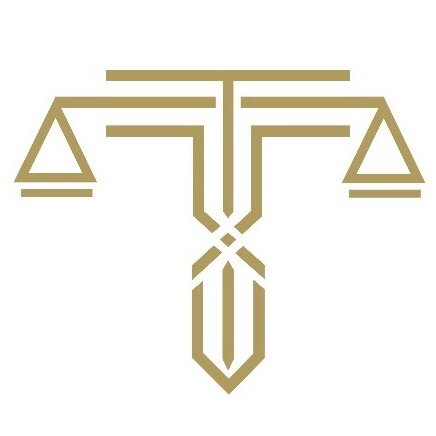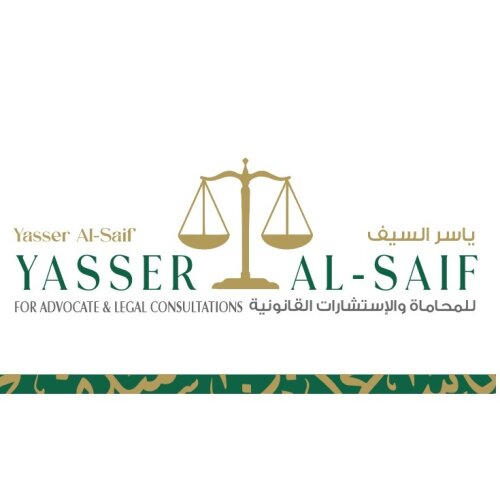Best Conveyancing Lawyers in Dammam
Share your needs with us, get contacted by law firms.
Free. Takes 2 min.
Free Guide to Hiring a Real Estate Lawyer
List of the best lawyers in Dammam, Saudi Arabia
About Conveyancing Law in Dammam, Saudi Arabia
Conveyancing refers to the legal process of transferring ownership of real estate from one party to another. In Dammam, Saudi Arabia, conveyancing is governed by a unique blend of Islamic law (Sharia) and national real estate regulations set forth by Saudi authorities. The process often requires various steps, including drafting, reviewing, and registering real estate contracts, ensuring that titles are clear and free from disputes, and verifying all regulatory and tax obligations are met. The legal process is distinct in Dammam due to cultural, legal, and administrative requirements that apply specifically in the Kingdom.
Why You May Need a Lawyer
Individuals and businesses often need a conveyancing lawyer when buying, selling, or inheriting property in Dammam. Common situations include:
- Purchasing residential or commercial property
- Selling real estate assets
- Transferring property as part of inheritance or family arrangements
- Addressing disputes in property boundaries or ownership
- Ensuring compliance with zoning, planning, and building regulations
- Registering mortgages or financial interests in property
- Reviewing and drafting sale contracts and agreements
- Dealing with foreign ownership provisions and restrictions
Legal complexities and language barriers can pose substantial challenges. Having a lawyer ensures that property transactions comply with local laws, reduces risks, and protects your rights and interests throughout the process.
Local Laws Overview
Conveyancing in Dammam operates under the framework of national laws, primarily sourced from Sharia principles, the Real Estate Ownership Law, and regulations by the Ministry of Justice and the Ministry of Municipal and Rural Affairs. Key aspects include:
- All property transfer transactions are overseen by designated notaries and municipal authorities
- Foreign ownership is restricted and subject to special regulations, typically limited to specific areas or approved for certain business purposes
- All sale and purchase agreements must be in writing and, in most cases, officially registered with government entities
- Inheritance and family law impacts conveyancing due to compulsory Sharia inheritance rules
- Mortgages and financial interests must be registered to be legally recognized against third parties
- Zoning, planning, and permitted use are strictly regulated and must be checked before completing any transaction
- Transfer fees, taxes, and notarial charges are incurred and must be accounted for in the transaction
Failing to adhere to these legal and administrative requirements can lead to costly delays, legal disputes, or even the invalidation of the transaction.
Frequently Asked Questions
What is conveyancing in Dammam?
Conveyancing is the legal process for transferring property ownership, ensuring that the transaction complies with local laws and that the new owner receives a clear title to the property.
Can foreigners buy property in Dammam?
Foreign ownership is highly regulated and generally limited to certain circumstances, such as approved business investments or designated zones. Approval from authorities is mandatory.
What documents are needed for property transfer?
Typical documents include title deeds, identification, sale contract, proof of payment, clearance of taxes and municipal fees, and any mortgage documentation.
How long does the conveyancing process take?
The timeline can vary, but property transfers in Dammam typically take several weeks to a few months, depending on complexity and regulatory approvals.
Are there taxes or fees on property transactions?
Yes, property transactions incur government fees, notary charges, and in some cases, a real estate transaction tax or VAT, depending on the property and type of transfer.
Do I need to be present to complete the transaction?
While physical presence is generally recommended, it is possible to use a legally authorized representative through a power of attorney if you cannot attend in person.
What role does a lawyer play in conveyancing?
A lawyer guides you through legal requirements, drafts and reviews contracts, liaises with authorities, and ensures your interests are protected at each stage of the transaction.
How are disputes handled if they arise?
Disputes may be resolved through negotiation, mediation, or litigation in the Sharia courts or special real estate tribunals, depending on the nature of the dispute.
Are off-plan or under-construction purchases common?
Yes, but buyers should exercise caution and work with a lawyer to ensure there are legal protections, escrow agreements, and clear terms in the purchase contract.
How do inheritance laws affect property transfer?
Under Sharia law, inheritance shares are strictly defined, and transfers must comply with these rules, making legal advice crucial in inheritance-based conveyancing.
Additional Resources
For further information or assistance, you can refer to:
- Ministry of Justice (responsible for real estate registration and notarial services)
- Ministry of Municipal and Rural Affairs (zoning and land use regulations)
- Saudi Arabian General Investment Authority (information on foreign ownership)
- Chamber of Commerce and Industry in Dammam (business and property resources)
- Licensed law firms and registered notaries specializing in real estate conveyancing
Next Steps
If you require legal assistance with conveyancing in Dammam, follow these steps:
- Gather all relevant documents related to your property transaction, such as title deeds, contracts, identification, and financial records
- Clarify your objectives, whether buying, selling, inheriting, or resolving a dispute
- Contact a licensed lawyer experienced in real estate and conveyancing within Saudi Arabia, preferably with knowledge of Dammam regulations
- Schedule a consultation to discuss your situation and receive tailored advice on legal requirements, risks, timelines, and costs involved
- Follow your lawyer’s guidance on preparing documents, representing you before notaries and authorities, and completing required registrations and payments
- Remain proactive in communicating with your lawyer to address questions or issues promptly as they arise
Understanding the complexities of conveyancing law in Dammam is essential for a smooth and legally sound property transaction. Seek professional guidance to avoid common pitfalls and protect your interests at every stage of the process.
Lawzana helps you find the best lawyers and law firms in Dammam through a curated and pre-screened list of qualified legal professionals. Our platform offers rankings and detailed profiles of attorneys and law firms, allowing you to compare based on practice areas, including Conveyancing, experience, and client feedback.
Each profile includes a description of the firm's areas of practice, client reviews, team members and partners, year of establishment, spoken languages, office locations, contact information, social media presence, and any published articles or resources. Most firms on our platform speak English and are experienced in both local and international legal matters.
Get a quote from top-rated law firms in Dammam, Saudi Arabia — quickly, securely, and without unnecessary hassle.
Disclaimer:
The information provided on this page is for general informational purposes only and does not constitute legal advice. While we strive to ensure the accuracy and relevance of the content, legal information may change over time, and interpretations of the law can vary. You should always consult with a qualified legal professional for advice specific to your situation.
We disclaim all liability for actions taken or not taken based on the content of this page. If you believe any information is incorrect or outdated, please contact us, and we will review and update it where appropriate.













